 Stephen Geller Katz LCSW-R
Stephen Geller Katz LCSW-R
Misophonia Cognitive Retraining Therapy
 Stephen Geller Katz LCSW-R
Stephen Geller Katz LCSW-RMisophonia Cognitive Retraining Therapy
Misophonia Cognitive Retraining Therapy, as featured on the MTV True Life episode: “I Have Misophonia” premiering Friday, December 16th, 7:00 PM EST. See Clip >
|
|
|
| Moderate to severe anxiety triggered by chewing sounds, including: | ||
|
|
|
You may also be affected by visual stimuli, such as repetitive foot or body movements, fidgeting or movement you observe out of the corners of their eyes. Intense anxiety, rage and avoidant behavior may develop as a result of misophonia.
 * Do you feel your family and friends don’t understand how much you suffer?
* Do you feel your family and friends don’t understand how much you suffer?
* Do you often feel you can just suffer through a social event where there is eating present only to find that you must “escape” before you have a panic attack?
* Do you find that some people are at first understanding and make some efforts not to make the triggering sounds in front of you, but soon forget and constantly have to be reminded, causing you to feel angry, anxious and depressed?
* Are you avoiding social activities that you enjoy because of the misophonia?
* Are you fearful of losing your job and/or is the misophonia effecting your job performance?
You may be a candidate for Misophonia Cognitive Retraining Therapy, or MCRT.
Stephen Geller Katz, LCSW-R, with over 20 years of clinical experience, a New York University graduate, developed Misophonia Cognitive Retraining Therapy and founded Misophonia Cognitive Center™ in response to the growing number of people with Misophonia coming to his private practice from audiologists and ENTs. He discovered that by helping people to retrain and reinterpret the thoughts around their Misophonia, anxiety and depression symptoms began to improve. But even more important so did the Misophonic trigger response.
What are the most common misophonia trigger sounds? People suffering from misophonia develop oversensitive ears to certain sounds. They can’t hold their emotions while hearing the triggering sound which often causes a negative reaction. Since normal people can’t feel any difference hearing the sound, they can’t understand the level of irritation. Various people suffering from misophonia have different triggers.
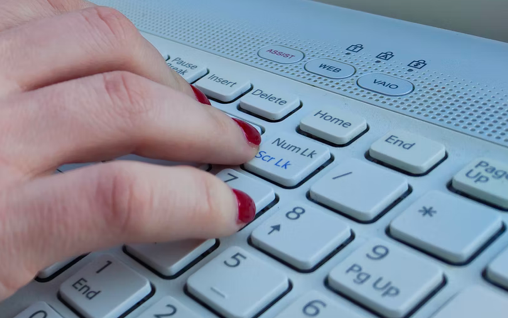
(Source)
For some people tapping a pen can be a trigger, while for others it would be normal. Similarly, others will find chewing irritating, but others don’t even notice the chewing sound. The triggering sound is so painful for the people that they get into a fight or flight situation.Whether they will leave the room or show their anger.
People with misophonia have different triggers for certain sounds. Among all the triggering sounds, chewing food is a common trigger. Crunching, slurping, and taping are also common triggers with the same reaction as scratching chalk on the blackboard.
Many misophonia triggering sounds are those made by the human body. But, some triggers are annoying because of the inanimate objects such as the whirring of a motor or clicking on the remote control. However, the level of toleration and severity is not as similar. However, when people with misophonia produce the same noise, they don’t feel any irritation.
Triggering sounds vary from person to person. The reaction to the trigger might increase or change or time. Even the reaction and tolerance from one specific sound to another might change. So, it is hard to identify what sound can be triggering for you.The common triggering sound for misophonia patients is oral sounds. Here are some examples:
Besides oral sounds, there is a wide range of other triggers as well, which include:
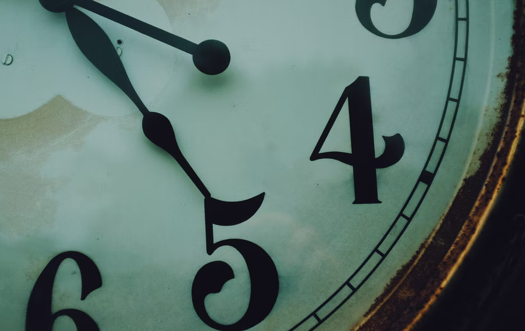
(Source)
Many people also experience extreme responses to visual triggers. Some examples of visual triggers are:
If you are suffering from misophonia, you might develop extreme emotions when you listen to the sound of these triggers. Since there are a plethora of triggers, you might have a different reaction to various sounds. Keep in mind that making the same triggering sound yourself won’t provoke your emotions. Thus, many people use this as a technique to cope with the condition. They mimic the sound to reduce their reaction.
Misophonia is not a life threatening condition, but it can disrupt your daily life. But, you can learn to cope with the symptoms. There isn’t a permanent treatment for the condition, but specialists can reduce the symptoms by combining various treatment methods. Many professionals recommend a hearing aid that plays natural sounds such as a waterfall in the background. The sound reduces your triggers and reactions to triggering sounds. The doctor will also recommend other treatments such as:
Coping with misophonia improves your quality of life and helps you manage stress. After the treatment, you will notice a significant improvement in your sleep cycle.
Are you looking for a professional who can help you treat misophonia? If yes, then you should contact Misophonia Cognitive Center™. In a convenient online session, you can discuss your options to reduce misophonia with Stephen Geller Katz.
Call today to schedule an online consultation:
Stephen Geller Katz LCSW-R
19 West 34th Street
Penthouse Floor
New York, NY 10001
646-585-2251
Is having a phobia of chewing a real thing? Have you ever encountered someone struggling with irritation and intolerance to certain normal sounds that others don’t even seem to notice? Do the normal sounds such as chewing loudly, pen tapping, clicking, and constant thumping trigger intense reactions in you or anyone you know?
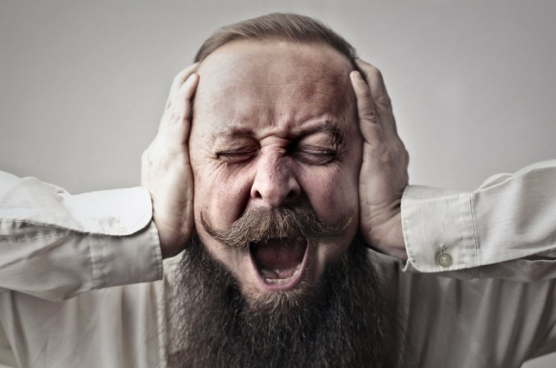
(Source)
Well, if that is the case, then it may have a connection with a selective sound sensitivity syndrome, Misophonia. It’s a Greek word, which means the “hatred of sounds.”
Officially, the term ‘Misophonia’ was first used during the year 2000, and doctors and experts described it as a mild to chronic sound disorder. The same research defined Misophonia as an individual chronic sound disorder and condition which doesn’t necessarily develop in association with other similar conditions such as tinnitus, OCD, bipolar, etc. Nonetheless, it is possible.
Despite doctors’ and researchers’ consideration of Misophonia as a chronic condition and sound disorder, it is not in the list of DSM-5 (Diagnostic and Statistical Manual of Mental Disorders). Hence, it is not an official mental health condition and/or illness in the United States.
What most researchers and doctors believe is that misophonic reactions are autonomic and unconsciously initiated. That is, they are a nervous system response upon receiving autonomic stimuli. What’s more, there are speculations, and studies have also concluded that alcohol and caffeine consumption in misophonic people can make their condition worse.
Commonly known as the “phobia of chewing” or other similar sounds, Misophonia is a condition in which people react abruptly in response to certain sounds and noises. The most common reactions include stress, anxiety, heart racing, perspiration, etc. They tend to get extremely uncomfortable and may even sometimes show aggression to great degrees.
It is not only the loud chewing sounds that trigger Misophonia in the affected people. In fact, what we perceive as normal sounds may feel like nails on the chalkboard to misophonic people.
But, you should keep in mind that the triggers often initiate unconsciously and automatically in misophonic people. Due to the reason that it makes misophonic people flee, hide, or act irrationally at places with triggers, it is known as selective sound sensitivity syndrome.
In addition, misophonic people also can also react in response to certain repetitive and perceptibly irritating motions such as feet wiggling, nose rubbing, etc.
Once in contact with any or some of the Misophonia triggers, there is a wide range of signs and symptoms that a misophonic person might exhibit. Importantly, the main coping focus for this condition is the prevention and control of aggression or other extreme reactions.

(Source)
Besides, there are variations in the signs, symptoms, level of irritation, and Misophonia triggers in the majority of misophonic people. One misophonic person might experience annoyance and urge to flee the place, but a different person might become aggressive due to the same sound.
Misophonia is common in many men and women of all ages. In reality, it can develop at an early age in many people. However, the symptoms might be more noticeable in adulthood or late teenage. What’s more upsetting is that misophonic people feel that they are losing control once they realize that their response to such sounds and noises was so aggressive.
In some cases, even the thought of such sounds can sometimes cause misophonic people to experience unrest and stress. Hence, they might lash out verbally or physically once a noise or sound becomes constant. They are more prone to depression and anxiety disorders due to their intolerance, behavior, and the need to avoid social interactions on nearly all occasions.
Another study suggests that there are several other responses and symptoms of a misophonic reaction to certain sounds and noises apart from the emotional responses. There are a number of physical reactions such as:
Additionally, a study concluded that more than 50 percent of the misophonic participants had an obsessive-compulsive personality disorder (OCD).
A few of the many Misophonia trigger sounds include:
Do you or anyone in your family suffer from similar symptoms discussed above? You should consider seeking the best professional medical care to identify the reasons behind such irritation and responses.
Dr. Stephen Geller Katz LCSW-R at the Misophonia Cognitive Center™ excels in the treatment of Misophonia and related conditions. He is a highly experienced and trained specialist.
Schedule a highly secure online session from anywhere in the world:
Misophonia Cognitive Center™
Stephen Geller Katz, LCSW-R
646-585-2251
References
https://misophonia-association.org/common-misophonia-triggers/
https://www.medicalnewstoday.com/articles/320682#management
https://www.npr.org/sections/health-shots/2019/03/18/702784044/misophonia-when-lifes-noises-drive-you-mad
https://www.health.harvard.edu/blog/misophonia-sounds-really-make-crazy-2017042111534
Unlike Hyperacusis, the sounds that trigger Misophonia are usually not loud. The nature of sounds that usually trigger the people who suffer from misophonia is usually continuous and intrusive in nature. Let’s remind ourselves that a person with Misophonia is usually a very sensitive person. Their level of tolerance for these obnoxious or irritating sounds is not very high. These sounds can be very subtle and also very loud. Each individual who suffers from this condition has low tolerance for particular sounds but some sounds are more common than others.
This sound is the most common one that have a very triggering effect on a person with Misophonia. A person with Misophonia will display an immediate and rigorous reaction to this sound. The problem with this sound is that even the general population does not like the sound of loud chewing. You may be disgusted by it, but that would only mean that you are sensitive to that sound and are likely to address it by a verbal protest. A person with Misophonia gets triggered by this sound and experiences an involuntary reflex reaction to it. So, eating in public restaurants or around people can be impossible.
This is the second most common sound that can trigger a response. Just like chewing, it is also an accumulative sound; it is subtle, repetitive, and the human mouth produces it. Not that it matters where the sound is coming from because the sounds made on the dinner table can also invoke a response. Breathing sounds would include all sorts of breathing, snorting, sniffing, yawning, whistling, signing, coughing, and sneezing.

(Source)
Any sound that our vocal cords or mouth produces can cause a Misophonic trigger, these include smacking lips together, making particular sounds with the help of your tongue, high pitched whispering etc. The little casual murmurs we might find ourselves making can also cause a Misophonic jerk. Sometimes, the consonant sounds produced by us can also be triggers (S and P) mostly. This is why people who suffer with Misophonia prefer not to interact with other people. They would rather have no social life than be in excruciating pain.
We usually do not notice sounds in our homes. Thankfully, we don’t suffer from Misophonia. A person who suffers from a severe case of Misophonia leads a hard life. This is because if they try to isolate themselves from others and lock themselves up in their room, they are still not safe if the neighbors decide to have a party. Studies have shown that one of the most common triggering sound, after eating and breathing sound, is the sound of bass playing through walls. This sound also follows the similar continuous and repeating pattern. Other less common triggering sounds produced in the house include, table shifting, glasses clinking, vacuuming, window wiping, walking with flip flops on, opening a bag of chips, the crackling of wrappers, nail clipping, etc.
If it were possible, a person suffering from Misophonia would spend their days locked inside the house. Earning a living can be a disastrous effort for people who are hunted down by Misophonic sounds that can arise from anywhere. Many sounds in the workplace may annoy a Misophonic person. Sounds like keyboard typing, mouse clicking, beeping of phones, printers, laptops, and banging of desks. This makes it almost impossible to concentrate on work. Other sounds that can bother a Misophonic person outside the house are car of engines, construction noise, doors slamming, and birds chirping. These Misophonic sounds that are produced outside can push anyone suffering from this disorder to become socially isolated.

(source)
This disorder is a weird phenomenon. Not only do the sounds of certain kinds set off an emotional response, but also the actions that produce those sounds can cause an emotional outburst in a misophonic person. If chewing is bothersome to the person with the disorder, then the very action of a person putting a gum in their mouth can also elicit an emotional response. Just like the repetitive nature of certain sounds, actions that are repetitive in nature can provoke a reaction. Actions like shaking legs, scratching the face, and brushing hair. Basically, any visual image that occurs before the trigger can be associated with causing a Misophonic trigger response.
Anything that vaguely follows a soft and repetitive pattern, whether it is a sound or a sight, can cause an misophonia related emotional reaction. It is important for us to understand that a person with Misophonia not only hears this sound but also feels it intensely.
If you or anyone you know has this disorder, schedule a tele-meeting with Stephen Katz LCSW at the Misophonia Cognitive Center™: 646-585-2251
Does people chewing bother you due to misophonia? There are various times when the sound of a pen tapping, chewing, and other sounds annoy you. But if you experience severe symptoms every time you hear these sounds, it can be a serious condition. People with such a condition suffer from misophonia. For these people, such sounds are not only annoying but unbearable.
Experts named this condition in 2001. The word misophonia means hatred of sound in ancient Greek. Medical professionals also recognize the condition as selective sound sensitivity syndrome. This is an abnormality in the brain with physiological and psychological symptoms. In a recent study, researchers found differences between the brain structures of people with misophonia and people who do not have this condition. The difference was prominent in the MRI machine when their brain reacted to sounds that trigger their condition.
This hypersensitivity to noise and sound can lead people to develop a fight or flight response. They also feel rage, anxiety, and panic when they hear these disturbing and triggering sounds. If they fail to treat the condition or seek help in time, it can lead to depression and social isolation.
Research on misophonia is still not extensively available. There is still no criteria to diagnose the condition in the Diagnostic and Statistical Manual of Mental Disorders (DSM-5). However, some doctors have found certain treatments to be effective and have included it under “Obsessive-Compulsive and Related Disorders.”
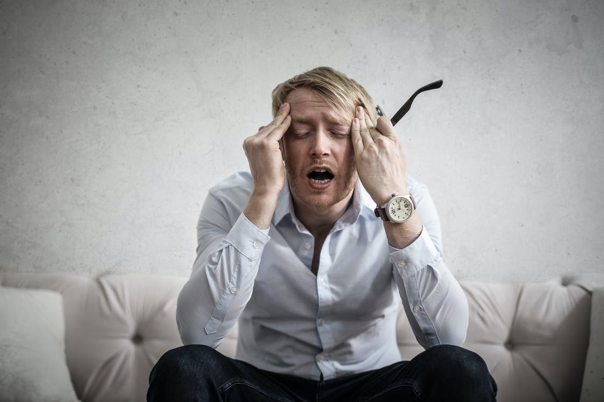
(Source)
Various sounds may trigger you if you have misophonia. These sounds differ from one person to another and may also change over time. Oral sounds are the basic and most common triggering sounds that affect most people with this condition. Here are some of these sounds:
Other sounds that trigger the person suffering from this condition are:
Any sound can be irritating for misophonia sufferers. People with misophonia also gets triggered with visual triggers, such as:
The main characteristics of this condition are an extreme reaction like aggression and anger to people who make these sounds. The reaction to the sound may vary depending on the person. It also depends on how much a person can tolerate these sounds. Many people may feel irritation and annoyance, but some may also experience full-blown rage.
Both genders can develop this condition at any age. However, they start showing symptoms when people are in their late childhood and teenage phase. Initially, only a few or a single sound triggers people, and when they do not take care of it, the response time increases and additional sounds also start eliciting a negative response. People with misophonia realize how excessive their reaction to sound is, and they know that their feelings are un-controllable when they listen to the sound that triggers a response. According to studies, here are some of the triggers of misophonia:
Other than emotional responses, there are many studies in which commonly experienced physical reactions were found:

(Source)
Researchers are still not aware of the causes behind misophonia. People suffering from the following conditions are at a higher risk of developing misophonia:
People suffering from Tinnitus have a higher chance of developing this condition. When people suffer from tinnitus, they hear a continuous ringing-like sound in the ear that people around them can’t hear.
Misophonia is a condition with its own symptoms and does not relate to any other diseases, but this condition can overlap with various other conditions. Many people suffering from any of the above conditions may develop misophonia and experience similar symptoms. For instance, if a person suffers from misophonia, they may experience sweating, heart racing, etc. whenever they perform stressful tasks at home or at work while hearing a specific sound.
In various circumstances, misophonia can become non-tolerable, and the condition gets worse from time to time. If you treat the condition in time, you may get relief before it gets uncontrollable.
For professional treatment and expert advice, you can contact misophonia expert Stephen Katz LCSW at 646-585-2251.
Visit our main website at https://www.misophoniacognitivecenter.com/ for complete information about the conditions we treat.
Do You Hate the Sound of Chewing? These days, ASMR videos are all over the internet. There are millions of people who enjoy the sound of chewing. Some people even say, the chewing sound provides them calm and help them sleep better. However, many people hate the sound of chewing, and it makes them angry when somebody makes those sounds. This is a condition called, “Misophonia.” When a person has this disorder, they cannot stand the sound of repeated pen-clicking, chewing, eating, slurping, loud breathing, and such noises. In 2000, people referred to this condition as Misophonia.
In many studies, you will see that misophonia is having an extremely adverse reaction, thought, or feeling when you hear triggering sounds. The triggering sound may be soft, but they can be loud.
In some studies, the results show that 80% of the sounds relate to mouth like slurping, popping gum, eating, whistling, whispering, and many more. 60% of the triggering sounds are repetitive sounds like a clock ticking, pen-clicking, water dripping, or sound of a fan.
A study showed that your first misophonic reaction could occur at a younger age because of a person, or a pet or an incident.
You will observe that when a person with misophonia hears the trigger sound, they may react to it with violence. Often, the person doesn’t even realize how violently their reaction comes across.
Misophonia cases differ from one another. Some people have severe reactions to the chewing sound, and some might have mild reactions. The sufferer considers it as an abnormality, but it is okay if certain sounds irritate you.
Everybody is still unsure about how misophonia works. Again, some studies say that you suffer from it because the sufferer might have dysfunction in their central auditory system, not in the ear but the brain.
A 2017 study shows that people who suffer from misophonia have a high amount of myelin (a fatty substance that wraps the nerve cells, which produces electrical insulations for the brain.). However, it is still not sure that myelin is an effect of misophonia, or it is a cause that gives misophonia.
Many people confuse misophonia with hyperacusis. They think that the sufferer has phonophobia, and they are scared of the trigger sound, but in reality, the sound is annoying them. Sufferers even say that the sound of someone chewing makes them feel like someone is chewing a part of their brain physically, which is why they have a violent reaction to the sound. Some studies also say that misophonia is entirely genetic.
Some studies say that misophonia is a result of anxiety disorder. DSM-4 and ICD 10 do not recognize the disorder. They do not classify it as a psychiatric or hearing disorder, but you can class it as a sound emotion synthesis.
Until 2018, people were not clear if it is a symptom of some other condition or it is a condition itself.
There are no evidence-based therapies for misophonia, but when you ask the health-providers, they will give you some tips concerning how you can overcome this condition. They will ask you to conduct tinnitus retraining therapy and might put you on cognitive-behavioral therapy or exposure therapy. These will help you in dealing with these sounds better and not react violently. They will help you in becoming less aware of the trigger sounds.
Since it is a relatively new research topic so there no known number of it. Whether females or males, younger or older, are more likely to suffer from it.
But there are many support groups on the internet for it. So you can find out for yourself the right epidemics.
When it comes to misophonia, many people around the globe have it. Many people find chewing sounds relaxing and pleasing, but people with misophonia would start getting violent when they hear such triggering sounds.
There are many ways to deal with misophonia. You can conduct your treatment for it. Or you can join the support groups and even go to a health care specialist to ask effective treatments to ignore the triggering sounds.
 When you’re dealing with noise syndromes like misophonia, even the smallest of sounds can strongly impact how you feel or act. They get under your skin and cause you extreme discomfort and anxiety. These conditions may even lead to extreme bursts of rage, depression, or even suicidal thoughts.
When you’re dealing with noise syndromes like misophonia, even the smallest of sounds can strongly impact how you feel or act. They get under your skin and cause you extreme discomfort and anxiety. These conditions may even lead to extreme bursts of rage, depression, or even suicidal thoughts.
All cases of misophonia are different, as no two people are alike. Because of this, not all of the same sounds effect people in like manners. There are, though, common noises and sounds that are highly triggering to individuals with noise disorders and misophonia. We’ll go through some of the most common kinds of noises that are associated with misophonia and how they trigger symptoms in patients below. This should help you recognize whether you may be suffering with this type of syndrome and if you should seek treatment.
 Because misophonia is a sound disorder, the most common classification of noise triggers is auditory. This refers to objects that plainly make identifiable noises. The specific types of auditory triggers vary in each person, but some sounds are more common than others. For example, the sound of a tapping pen or squeaking chair is more commonly reported as triggering compared to the sound that comes from yawning.
Because misophonia is a sound disorder, the most common classification of noise triggers is auditory. This refers to objects that plainly make identifiable noises. The specific types of auditory triggers vary in each person, but some sounds are more common than others. For example, the sound of a tapping pen or squeaking chair is more commonly reported as triggering compared to the sound that comes from yawning.
Other possible noise triggers include chewing with an open mouth, the scraping of a form across a plate, a clock ticking, the hum of an iridescent light, and more. It is important to keep in mind that any noise can become triggering for someone depending on how they were raised or what feeling they associate the noise with.
Less common than auditory triggers, there are certain circumstances that may affect an individual with misophonia where they react when repeated movements are seen and observed. These are known as visual triggers. This phenomenon is much less known of than auditory triggers, as noise disorders are thought to solely affect sound. Some common visual sights that may trigger symptoms of misophonia include chewing, the scrolling with a finger on the screen of a smartphone, the bouncing of a leg, or even hair twirling. If you are triggered by these certain visual cues, you may potentially have a more severe case of misophonia that should be addressed by a specialist.
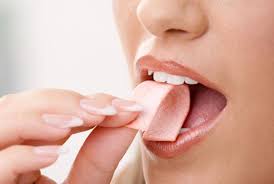 The least common and most rare form of misophonia triggers are tactile and olfactory triggers. This refers to things relating to either touch or smell and odors, respectively. If you find yourself aggravated, depressed, or filled with rage when around or smelling certain objects or scents, you may have misophonia. These are more related to personal background and upbringing, solely referring to feelings associated with these objects. Because of this, it is difficult to directly identify examples of both tactile and olfactory triggers. If you realize you are being strongly affected by tactile feelings or smells, consider talking to a misophonia specialist for help.
The least common and most rare form of misophonia triggers are tactile and olfactory triggers. This refers to things relating to either touch or smell and odors, respectively. If you find yourself aggravated, depressed, or filled with rage when around or smelling certain objects or scents, you may have misophonia. These are more related to personal background and upbringing, solely referring to feelings associated with these objects. Because of this, it is difficult to directly identify examples of both tactile and olfactory triggers. If you realize you are being strongly affected by tactile feelings or smells, consider talking to a misophonia specialist for help.
If while reading the above list of noises that trigger misophonia you were able to empathize with some of the feelings with associated noises, feelings, sights, or smells, you may suffer from this syndrome. Depending on how severe your symptoms, visiting a specialist could be highly beneficial.
For some of the best misophonia treatment strategies in New York City, Steven Katz LCSW at the Misophonia Cognitive Center can help you.
Contact us today to schedule an appointment to determine the best treatment plan for you!
 If you’re trying to do some self-evaluation to figure out whether you might be dealing with misophonia, one of the best starting points are the kinds of sounds that you perceive as annoying – or triggering. Making a list is a good idea, as this kind of analysis is usually prone to being influenced by your own perception, so you’ll need to be sure exactly what kinds of sounds are truly annoying to you, and which ones are merely single incidents that can be safely ignored. Here’s a list of the sounds that misophonia patients have reported most often.
If you’re trying to do some self-evaluation to figure out whether you might be dealing with misophonia, one of the best starting points are the kinds of sounds that you perceive as annoying – or triggering. Making a list is a good idea, as this kind of analysis is usually prone to being influenced by your own perception, so you’ll need to be sure exactly what kinds of sounds are truly annoying to you, and which ones are merely single incidents that can be safely ignored. Here’s a list of the sounds that misophonia patients have reported most often.
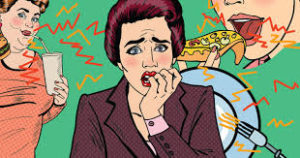 By far the most popular category are sounds that other people make, especially with their mouths. Chewing, swallowing, crunching something with one’s teeth – these are all common examples that frequently get reported. Even talking can sometimes be irritating when the talker has a specific tone of voice, or, related to the above, if they talk while eating. While many people find that at least mildly unpleasant, misophonia sufferers get significantly more irritated from such annoyances.
By far the most popular category are sounds that other people make, especially with their mouths. Chewing, swallowing, crunching something with one’s teeth – these are all common examples that frequently get reported. Even talking can sometimes be irritating when the talker has a specific tone of voice, or, related to the above, if they talk while eating. While many people find that at least mildly unpleasant, misophonia sufferers get significantly more irritated from such annoyances.
Sounds related to food and eating are also commonly present in these lists, even when they aren’t produced by other people specifically. For example, the classic noisy, crunchy sound of opening a bag of chips can drive some people borderline insane, especially if it’s prolonged by the person attempting to conceal their actions in a quiet environment. The clinking of glasses during a toast can also be a common irritator, making social gatherings particularly unpleasant for some sufferers when combined with the general noise and rattling associated with them.
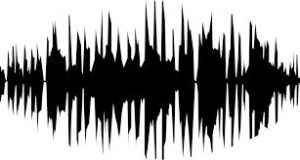 Staying at home and trying to immerse yourself in a quiet environment usually allows you to focus on the tiny everyday sounds associated with living in a house or apartment. Air filters, doors slamming and squeaking, the creaking of the walls, that fire alarm chirping because its battery is low – even one of those can often be enough to provoke a serious reaction in a person dealing with misophonia but combining several can make the situation a complete nightmare for that person.
Staying at home and trying to immerse yourself in a quiet environment usually allows you to focus on the tiny everyday sounds associated with living in a house or apartment. Air filters, doors slamming and squeaking, the creaking of the walls, that fire alarm chirping because its battery is low – even one of those can often be enough to provoke a serious reaction in a person dealing with misophonia but combining several can make the situation a complete nightmare for that person.
Feel like dealing with this on your own is too much? If you want some professional guidance through the process of identifying misophonia and dealing with it in your daily life, you should contact us for an appointment today. You can hardly do better than the best misophonia specialists in NYC, after all.